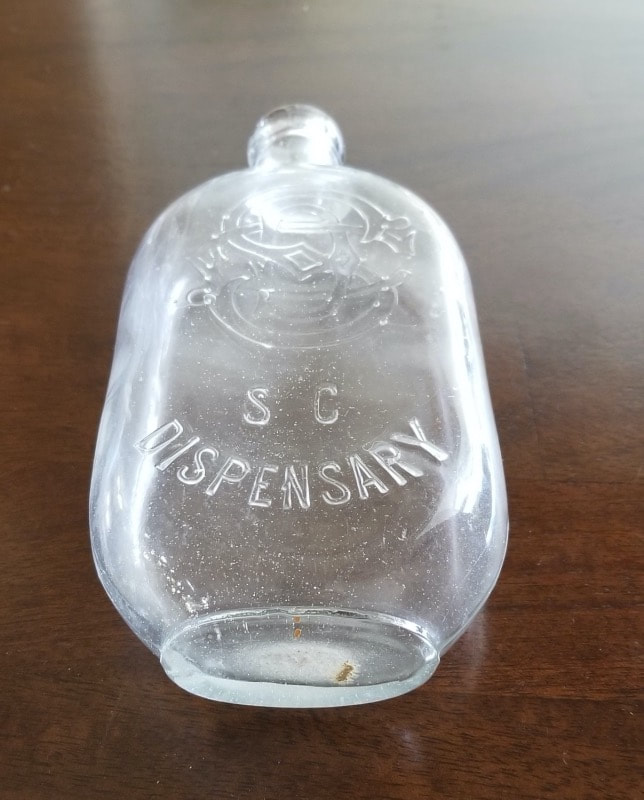|
Few businesses will likely emerge unchanged in any way once we are past the current pandemic. Ironically, my appraisal business may one of them, but not so for the broader antiques and fine art fields. Here are some of the trends and aftermaths I suspect we will see.
First, it is likely that at least some of the galleries and antiques stores simply will not return. The galleries are in an especially challenging environment since much of the selling typically happens at crowded openings or when the gallery staff can closely interact with one or more customers. This will not be the norm for a while and whether a gallery can survive the ensuing sales drought will depend on several factors, including overhead and the ability to increase successful online strategies. Antiques stores may fare better although that industry has been struggling for some time due in large measure to the steady erosion of interest in the merchandise among younger demographic cohorts. Again, moving to a stronger online presence or perhaps going completely virtual will likely be a necessary path for survival in many cases. I have actually been seeing this for some time on the Etsy platform, where it is clear antiques vendors have joined in sizable numbers. Speaking of Etsy, it has been interesting to watch how Etsy has quickly evolved from being a site for handmade crafts to encompassing an enormous variety of goods, including fossils and minerals, antiques, fine art, and pretty much anything that might be reasonably included in the handmade/vintage categories. For the record, I have a store there myself (MadCatEmporium) where I market my own local finds and have found the platform to be a delight to use. Another industry that is absolutely being altered by the pandemic is the auction business. In-person previews are largely out now and it is hard to say when they might some day be revived. Again, it is the online strategy that is now being maximized and which will likely benefit most those auction houses with the capital to stand out in already crowed arena. The downside to this trend though is that the major houses are presently shedding staff and ordering significant pay cuts for those that remain employed. Look for leaner staffing with an emphasis on good photography and condition reports. For those of us who have fond memories of hunting nice pieces at antiques stores or mingling at art openings, the changes being wrought will make us ever more wistful. But, these changes have also long been in the making. To my mind, the current pandemic is simply imposing an unwelcome Darwinism on those business who were already struggling most and also forcing survival changes at an accelerated pace. One thing for sure though is that the retail and auction landscape will be quite different when the pandemic has passed. By virtue of age, almost any antique object will have a story behind it. Some will be interesting or important, most mundane. Some objects will never have their history or story revealed, others will rely on notes or oral history handed down from prior generations. In a few cases, however, the object itself will have all the information you need front and center.
Such was the case with an antique bottle that I recently found at a local re-sale store. Bottles are not a specialty of mine but the obvious age and the SC (for South Carolina), combined with the reasonable price, was all the incentive I needed to become the new owner. Speaking as an appraiser, I'll share with you that Southern items almost always command a premium in the marketplace for historical items. A little quick research led to an interesting story behind the bottle, which is as follows: In 1893, the then-governor of South Carolina, Ben Tillman (known as "Pitchfork Ben" due to his farming background), decided to create a state-run liquor monopoly called the South Carolina Dispensary. Located first in Edgefield, SC, the dispensary offered spirits in half-pint, pint, and half-quart bottles. The most common sort are the "Jo Jo flasks" such as the one pictured above. Soneware jugs, made both in SC and VA, were also used. Originally, most bottles were made by out-of-state glass companies but in 1902, Tillman moved the dispensary to Columbia where bottles were then made by the Carolina Glass Co. It was a short-lived enterprise, however, with the dispensary closing its doors in 1907. The Jo Jo flasks are easy to spot, with a large SCD monogram on the front of the flask and "S C Dispensary" embossed beneath it. The glass company will usually appear on the reverse side... in this case my bottle was marked "C G Co" for the Carolina Glass Company. Hence, it probably dates to 1902-1907. A second type of bottle was the "Union flask", which lacks the monogram but bears two titles, S C Dispensary and South Carolina Dispensary. The common clear bottles usually trade in the $75-150 range but rare forms can bring $20,000 or more. For a much more in-depth discussion of the dispensary and the types of bottles they used, you can follow this link to Wikipedia. Here is the link: https://en.wikipedia.org/wiki/South_Carolina_Dispensary. I found it to be a fascinating read and now know to be much more attentive when I run across old bottles. Whether I ever find one of the really rare SC Dispensary flasks is anyone's guess but the story behind the bottle I did find was a good one. |
AuthorBryan H. Roberts is a professional appraiser in Sarasota, FL. He is a member of the Florida State Guardianship Association and currently serves on the board of the local FSGA chapter. He is a past president of the Sarasota County Aging Network, a non-profit that provides grants to other non-profits benefiting seniors in need and is also a board member of PEL, an area non-profit whose resale store profits support programs and scholarships for at-risk and disadvantaged youth. He is certified in the latest Uniform Standards of Appraisal Practice (USPAP) Equivalent Archives
May 2024
Categories |


 RSS Feed
RSS Feed